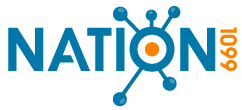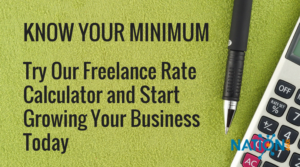Productize Your Services: Trendy buzzword or easy-peasy revenue stream?
Let’s start with the holy grail of productizing a service business. You are a solopreneur and develop a software program for a client to fit their particular need. Customer loves it, tells two friends with similar businesses, and shortly thereafter your SaaS has exploded into the must-have subscription program for a market niche. After riding the success, you sell your company to someone who could have been a judge on Shark Tank, invest the money and start the whole process over again.
Or, let’s say you are a freelance writer with a niche or a career coach of some kind. You can turn your expertise into a book that hits the bestseller lists.
This would be awesome, but it’s not realistic. This is the equivalent of your high school garage band “blowing up” and overtaking Taylor Swift in album sales and downloads.
Is there a more realistic target for freelancers and solopreneurs? Is it possible to productize a service in a way that adds recurring revenue, diversifies your freelance income and helps you charge more for your services?
You bet.
Where to start with productized services
Robert Craven, author of Grow Your Service Firm and Grow Your Digital Agency, says there are some things to think about before launching a product. He suggests you ask yourself the following
- Is there a need or demand in the market to productize my services?
- Will the productizing of my service cannibalize sales of the full service, or will it create an increased demand for my high-end offers?
- Am I able to create a product staircase offering a free product, then a low-price product, then a higher-priced product and then my premium service?
Freelancers considering creating a productized service should also take time to glean useful input from conversations with customers.
Brian Casel, founder of Casjam.com and designer of Restaurant Engine, talks about this in his article Lessons learned building a productized service.
“Through the first year and beyond, my conversations with customers are what led to the most actionable insights,” he says. “Luckily, I spent an enormous amount of time manning the live chat widget on our website, answering emails and getting on the phone with any customers who wanted to.”
Casel says that in these early pre-sale conversations with customers, ideas surface and, after many interactions, “the right direction becomes smack-you-over-the-head obvious.”
Why you should productize your services
There are strategic benefits to creating a productized service to complement your primary service offerings.
“You are able to demonstrate your expertise by offering DIY or light versions of your full service,” says Craven. “Products are a way of finding or nurturing leads. High-value products can become an entirely new business model for you, especially if you own a niche within a niche.”
This, Craven adds, allows you to reach more people than you are able to on a one-by-one basis.
Another strategic benefit to offering a productized version of your service is the reduction of initial meetings with “tire kickers” and time spent drafting proposals for these potential customers.
“If you’re freelancing and risking a lot of time on discovery meetings and writing proposals, then try proposing a paid discovery process,” Craven says.
“For a small fee, you can sit down with your client and scope out their project. This gives the client something of value (a clear roadmap and specification), and it ensures that you’re paid for your time.” The goal, of course, is to then move the customer up Craven’s product staircase to your higher priced offerings.

Productize your sales process
Another way of thinking about this is to turn that initial discovery and proposal phase that you normally give away for free into a packaged service that you sell. Usually this takes the form of some kind of blueprint, audit or strategy document. You essentially productize your sales call.
Before we mock up an example, let’s pause here to acknowledge that the kinds of freelance careers we are all involved with is innumerable. So your business model, and the industry you work in, will look very different from this.
But suppose your service operates on selling six-month contracts. It’s a big lift for your clients, so you have to do a lot of prospect calls and proposals to land a few high-value contracts. (Other freelancers may work on the opposite model — very high volume of much lower value contracts.)
The old way for that kind of freelance business is to get on the phone with a prospect and ask the questions you need answered in order to write them a proposal. Which they may never even look at because they are really just kicking the tires. Or because this is such a big purchase decision that they get overwhelmed and never get around to pulling the trigger even if you are their first choice.
The new way is to get them to agree to pay for this introductory planning document. Then you get on the phone to ask the questions necessary to create it. Once they have it, hey are much more likely to look at. And they much more likely to hire you to carry out the plan, because they know you, feel reassured and don’t feel overwhelmed by the project ahead.
Related reading: How to Smartly Raise Your Rate (and Handle Unsustainable Clients)
What types of services should you productize?
Perhaps a question that many solopreneurs wrestle with is how exactly or what exactly to productize.
In her article, 10 Things a service business can sell online, Chaitra Vedullapalli outlines many suggestions for independent contractors to consider productizing. A great place to start: video.
“If you have a skill that can be demonstrated, chances are someone somewhere in the world will want to learn it too,” says Vedullapalli. “YouTube has made it easier for people to earn. You can create original videos and monetize them through ads, which YouTube splits with the video creator.”
Digital goods are another option, according to Vedullapalli. “Digital goods could be anything from software to ebooks to designs,” she says. These can also include whitepapers, fonts, photographs, specialty clip art or recipes.
As you consider your own approach to productizing, Craven points out that the starting place for generating product ideas is not with the product. “You need to understand what the customer’s problem is,” says Craven, “You need to understand what problem you are solving.”
Related reading: 7 Powerful Strategies for Getting Recurring Income as a Freelancer
Productize your internal working processes
That said, the product might be sitting right in front of you because you already created it to solve problems for previous customers. Often times these are tools you created for internal use. In other words, your internal work processes or work product can be excellent sources for ideas for productized services.
For example, suppose you have developed a checklist for onboarding new clients that keeps getting more comprehensive. Over time you realize you are essentially auditing the client’s capacity on your particular domain. That checklist might make the foundation of a digital good that you can sell.
Selling that as a self-serve product to your clients and prospective clients also allows you to automate some of the most low-value part of your work so you can concentrate on the more high-value part and therefore raise your freelance fees.
Turn your freelance services into courses for recurring income
One of the most popular ways to diversify freelance income is to sell online courses. There are many different ways to structure these, but the automated self-serve formats also have the advantage of creating recurring income without increasing your workload.
Many people in the Nation1099 family have productized their services by selling online courses in some way. One great example is the marketing resources for freelancers that Ilise Benun, a.k.a. The Marketing Mentor, has built up using her experience and expertise. Jordan Roper, a.k.a. The CutThroat Copywriter, is another.
One great software for building and marketing online courses is Thinkific.
Don’t lose sight of your objective: growing your business
“In my opinion, growing a business is far more about engagement than it is about interrupting your potential client or shouting at them to buy from you,” Craven says.
“The customer has far more opportunity to check you out online so it is even more important today to be consistent and recognize that your reputation is an asset you must protect.”
Casel agrees and says to focus on consultations not registrations: “Over time, I noticed that many customers needed two to four interactions via email, live chat or phone in order to feel ready to sign up.”
He made the decision to shift the strategy away from asking for registration and encouraged visitors [to his site] to request a consultation.
“This was huge,” Casel says. “It enabled me and my team to call and follow up with people who have shown interest — which I already knew helps drive sales.”
And, through this, Casel learned the importance of focusing on systems. “The more I moved the business toward doing things manually, the more I focused on systems and procedures and on streamlining our processes,” he says.
“This has allowed me to delegate all tasks involved in serving our customers to my (amazing!) team.” Of course, hiring someone to boost revenue will break you out of the hourly pay model, but your system must be reproducible.
Developing productized services for your business has many clear benefits. Even if the product itself doesn’t become a runaway bestseller, it can free you from the hourly pay model.
So keep in mind Craven’s final word of advice: “Productizing has been presented as a silver bullet to quick riches. It rarely is,” he says. “You need to be prepared to try several different models and be prepared to flex your solutions to fit what the customer really wants.”

David Karch freelance writes copy for both online and offline clients ranging from websites and blog posts to newspapers and professional journals. In addition to freelance writing, David is an Orlando, FL-based Learning Specialist and works with students in K-12 on academics, standardized test prep and Executive Functions.










